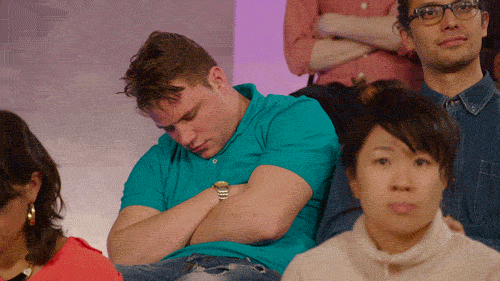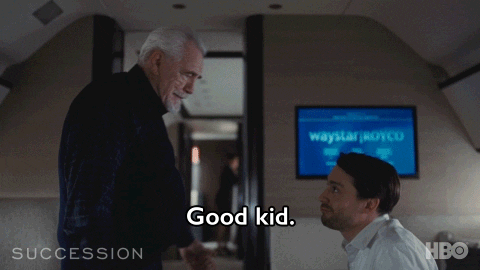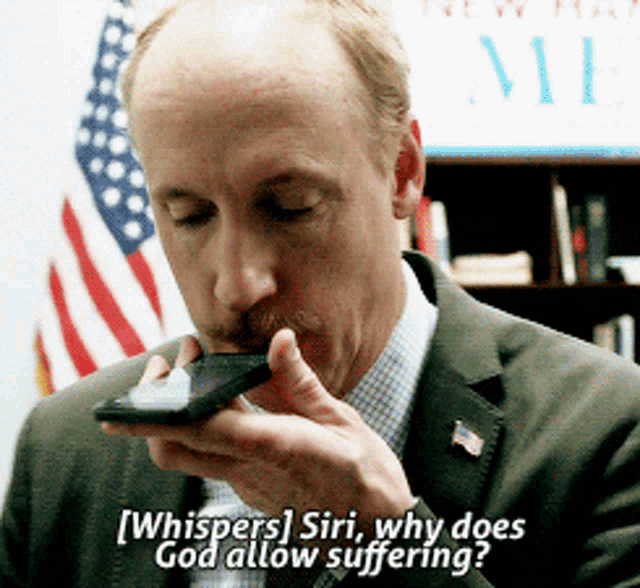The following book review and interview, just in time for Fathers Day shopping, comes to you via Janet Manley, an Australian witch, and yours in existential crises.
When he became a father, my husband read no books on the subject. Nor did my male friends, or my friend’s husbands (“Not a one”), according to a brief and informal survey. The result was that when my daughter woke in the middle of the night during our first attempt at sleep training, the weight of what to do fell more heavily onto my side of the bed. I remember lying there listening to the crescendo of crying, and saying, “Ughh, what do we do?” My husband would respond, “What does the book say?” which made me cranky he hadn’t read the book (“You tell me what the book said!”), and rinse repeat.
Women purchase upwards of 70% of relationship and family-oriented self-help books, according to various market research reports; the "parenting" industry targets female consumers, who are believed to control $2.4 trillion in spending power per a 2019 Forbes estimate. For mothers, parenting is a vocation, a hobby, an identifier, a religion, a “beat” for writers and journos like myself.
On the other hand, men are “expected to always know just what to do,” writes author and psychologist Jordan Shapiro, Ph.D., an associate psychology professor at Temple University, in Father Figure: How To Be A Feminist Dad, out now from Little, Brown. So dads get tips on how to change a diaper on the trunk of the car in the few “dude” and “caveman”-oriented parenting books — they are all branded with plaid shirts and construction signs — and not much else.
Equity in parenting is gestured at, but if someone must stay home with the children during a pandemic, it turns out it will almost always be the mom (who here has purchased pom-poms for a child’s sensory tub in the past year?), with the good men among us using their powers as dads to view the world through the empathetic goggles of a Father Of Daughters, and otherwise often shunting the questions about how to feed and sleep-train the baby to the mother. And these are well-meaning, invested dads!
I found the book fascinating, and Shapiro funny and smart as he examined how a lot of men think they're good guys, then wonder why they are being criticized for their creepy daddy-daughter dates and weird mansplainey ways. Shapiro, a psych professor at Temple, calls out all the silly bullshit men have latched onto, and provides his antidotes. Shapiro’s book aims to awaken the great, well-meaning Dad Brain to this lack of awareness, but the question remains: if dads don’t read books on parenting, how can we get them to read this one?!
There are a lot of people who go into fatherhood, and they think that they are a good feminist dad, they believe that they are protecting their daughters, they have considered humanity from the perspective of a guy who has a daughter. Can you talk about where they need to take some of those ideas further?
When I was writing [the book], I had multiple audiences in my mind but certainly that was who I wanted to reach the most because I think that there are a ton of them. The majority of men, if you would ask, ‘Do you care about gender equality?’ would be like, ‘yes,’ but if you say the F word — feminism -— then it goes down.
[Many] dads, husbands, and boyfriends are trying to do self-actualization work. Maybe they buy one of these ridiculous masculinity books about, like, ‘find your core inner erection self,’ and those things feel really good to them, because on some level there's a half positive message in this, which is, be authentic, be present, learn how to be honest with the people in your life, learn how to be honest to yourself. All the normal lessons of self-help and psychotherapy.
But there are all these other tropes about masculinity and fatherhood mixed in, and those men try so hard to do the right thing. I was somewhat writing to men who really do try and really want to be good fathers.
I have statistics in the book about how even among those who proudly scream, ‘I'm a good dad, I'm a good man, I'm a family man’ — maybe they even will say they're a feminist — when you like look at how the labor is distributed [in their home] it's just not even true.
Part of what's making the transformation away from that hard for men is a lack of awareness. There isn't a book about feminism for men: they don't exist. Lots of books about masculinity [talk about being] vulnerable. The problem is not men's vulnerability. Men are allowed to be vulnerable. Men already have all the privileges to be like, ‘Oh, I need to go on a boot camp and scream about my feelings.’ No one stops them from doing anything, so this idea that they're trapped without being able to talk about their emotions is nonsense. I get that there are lots of pressures stopping them from doing that, but the world's open for them to work on it if they want to.
What's not open for them to work on, because I think the tropes are so deeply ingrained, is the systemic reinforcement of the patriarchal tropes and patterns we’re all sort of complicit in. Men need to take ownership and responsibility.
In the book, you unpack the way that fairy tales aren’t just sexist in that a princess winds up getting married, but in that she is really just a piece of the king’s psyche in need of resolution — the story is really about the king and not about his daughter. What psychological work needs to take place not to view their own children through a prism of their own understanding?
I talk about the idea that men have been taught that it's okay to imagine themselves as the center of the story, as the protagonist of the story, and that everyone sees them that way. They get to decide the story. Men get to frame the narrative.
For years, people have said the princesses in these fairy tales, the only agency that they want to exercise is to try to find Prince Charming, for example, and I'm saying no, they're not even exercising that agency. They are not even characters, they are props in a story, and dads are trained to see the world that way.
What I call in the book a “world of colliding myths” [is the need to] understand that you're all in your own story and every other person you're interacting with is also offering their own story, and you might be the villain.
When you hear things like “It's a hard time to be a man,” “Masculinity is devalued,” all this nonsense. I do think it all comes from a place of men and dads walking through their daily lives, imagining themselves as heroes, imagining themselves as good men, taking care of their children, and then suddenly they turn on the news and everyone's like, “You're the villain,” and there's pure cognitive dissonance.
I want to say, “Listen, there's nothing wrong with being a hero and acknowledging that there's places where you've been a villain. “
So the idea is that fathers generate the dominant reality in their house and your answer to that is what you call responsive fathering. Can you explain what that is?
On the one hand, it's super obvious that we're supposed to respond to things and not be controlling them and not be dominating them. I think that's a simple idea for people to get on that basic level, but then I take it a step further, which is acknowledging the places where things that feel so good, and I mean positive and ethical, like offering our children advice, might hide a paternal kind of dominance.
I use one example where I talked about how my father, when I was little, had all these emptied baby food jars full of screws and nuts and bolts. And he would keep them in the basement and he could always find exactly what he needed.
That's great when it comes to screws and nuts and bolts, but it also for a lot of fathers means we're looking at the world and trying to make it fit our categories, and so that's a kind of coercion. Take that to the place of paternalistic advice for your child or your spouse or whoever, someone comes to you and goes, “Let me tell you the situation I'm going through,” and our immediate reaction is, “Let me show you how to frame it so fits into my baby food jars.”
It took me a long time to get how many times in my life I heard romantic partners say things to me like, “I'm not asking you to fix it, I just want you to listen and sympathize.” Finally, it made sense to me that even my trying to reframe it is a kind of fixing, a kind of me owning the narrative, which doesn't feel good to anyone.
And being responsive is about going, “Hey I’m listening, really, really, really deeply to what you're saying and I'm thinking about what you need to hear or what's helpful to you, not what I want to say.”
So that brings us to: men are not the biggest consumers of parenting advice books. Does your work explain why dads might not feel like they need to seek out advice on how to be a dad? Do you think dads are gonna read this book?
Yeah. It's an uncomfortable question.
At some point, I was talking to the publisher, and they said some number to me that was shocking to me, somewhere like 80% of books are bought by women, and even the books that men read are bought by women.
When you're writing a book, you have a million conversations, thoughts, and discussions about the audience. If you want to write the whole book, then you have to think about the cover, then we have to decide, are we gonna call it out to be a feminist dad? Who is that? Who is that going to alienate? Will that make them buy it or is it spouses buying it for their husbands? So, yeah, I think there's a hard thing and when I think about promoting the book I often [wonder], am I promoting it to the wives and the moms, or am I promoting it to the dads? I'm not sure.
How do you write a book that's about telling people how to think without telling people how to think, because that would be patriarchal?
So the challenge was to go, how do I make this a kind of journey for readers that will open their minds in ways that allow them to arrive at their own more positive reflections about their experience? That's similar to how I think about teaching, which is not, how do I get these students prepared to answer the right questions on the test, it's, how do I get these students prepared to no matter what they're reading to ask certain kinds of questions in certain ways and then form their own judgments about it?
I do think there's a lot of pain for men right now. I also don't want to ever suggest men are in a victim position either because that's absurd, but I do think there's a lot of men who are really confused about how to make sense of this moment. And there are no images, there's nothing going “Hey, here's what it's like to move towards a post-patriarchal way of being for men.”
And what dads get fed to them about things like misogyny and patriarchy is the way that women experience the subjugation of patriarchy and misogyny, and that doesn't register with men very well, because that's not how they experience it. They're not experiencing a sense of dominance and superiority. Most of the time they're feeling inferiority: Why am I not the alpha? Why is this person at work having more success than I am? So it's very hard for them to sort of make the leap to see how those two things are the same.
[What] I am seeing from people who have told me they read it is they go home and they talk to their spouses and they learn how to listen to the other stories that are going on in the house. And then guess what happens? Suddenly everyone in the house is interested in your story again, and they love you again, and you're suddenly sexy to them again, and you're like, “Whoa, holy crap all I had to do was listen.”
Early parenthood is so unsettling, the ground is moving. How do you view the beginning of parenthood, does it bring an opportunity to change those ingrained ideas?
The beginning of parenthood, for me, was not only confusing because I was recreating many of the same old tropes of parental expectation and cultural expectation, but also I wasn't very good.
I think many men want that to be the opportunity and but there's really not a model for that in any way. This thing I keep seeing on TV while I'm binge-watching old shows is the misogynist good dad — they’re so caring and we're so impressed with their ethics and they're so perfect, but then what we saw watching The O.C. is Sandy Cohen is perfect, always compassionate, so ethical, [but] he lies to all the women constantly, and we're cheering him on where he's like, “I need to protect your mother. I can't tell her what's going on, because she's too weak to handle it.” That's every scene.
As a kid I couldn't reconcile it in my head, that on the one hand, my parents were telling me to treat people equally, treat everybody with respect and dignity, and then I would hear this sort of male camaraderie especially around sports and from the men in my life that I respected, that was obviously in contradiction to that. I think there is a kind of ritualization of misogyny instead of what we should be doing, which is a ritualization of equality and inclusivity.
What I think will happen with the book is that those men who really do read it are going to find a much happier life at home. I think they're going to suddenly be like, “Oh right, there's a reason that I live with this spouse, there's a reason that I love these kids.” I think there are a lot of people living with a lot of tension and sadness in their relationships that would easily change with very small shifts of mind.
End credits
I hope you enjoyed this guest issue of Evil Witches, a newsletter for people who happen to be mothers and their supporters. If you have any questions, feedback, ideas for guest posts, or suggested topics for the newsletter you can reply right to this email. You can follow us on Instagram here and talk to other witches on Twitter, too.
If you haven’t, please consider supporting this independent, nonsponsored work and joining the subscription level (less than a dollar a week!), which gives you extra context and access to fun/helpful/honest witchy discussion threads.






